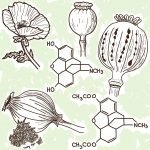Dissolving the Mind-Body Divide: Bringing Curiosity and Emotional Exploration to the Clinical Encounter
David Denis, ND
Suzanne, a 47-year-old woman, arrived at my office for her first visit, stating, “I have a parasite. Do you do parasite cleanses or testing?” She proceeded to share an unpleasant memory of having a parasite removed by her grandmother when she was 6 years of age, and her concern that she has had a life-long parasitic infection which was causing chronic symptoms of pain, fatigue, and digestive problems. Investigations conducted by her family physician had been inconclusive, and she was frustrated and discouraged. There was a sense of urgency in the room – she had come to be cured, and she wanted it now!
I began our meeting by assuring her that I would explore all possible causes of her symptoms, including parasites. I also stated at the outset that I was interested in understanding the potential impact that stress and emotions were having on her health. The assessment began with an exploration of her chief complaint of abdominal pain. We discussed when it started, what makes it better or worse, location of the pain, and other pertinent details. It became clear that these symptoms have in fact been present for most of her life, but have come and gone at different times.
I then asked her to describe “stress” in her life. She described feeling stress at work, stress with her husband, and with their child. There were themes of hyper-responsibility and feelings of resentment, guilt and anxiety. She also described growing up with her grandmother because her mother left and “disappeared” when she was 10 years of age. Following a thorough history of her physical symptoms, a review of systems, a physical exam, and a mental health history, I paused and asked her, “What do you think is at the root of your stomach pain?”
To which she promptly replied, “My stress.” Hearing herself say this, she appeared surprised and asked, “Is that possible?”
Increasing Patient Awareness of Mind-Body Connection
One of the core tenets of naturopathic medicine is to treat the whole person – mind, body, and spirit. Many patients consult a naturopathic doctor to help them with symptoms for which conventional medicine does not have any answers. In many cases, these symptoms can be either caused or aggravated by the physiological repercussions of stress and negative emotions. Some patients are very aware of the way their emotions can manifest as physical distress, while others are not. Naturopathic doctors tend to be very aware, themselves, of this connection, and can often see it at play in their patients. The clinical difficulty comes in bringing awareness of this emotion-body connection to a resistant patient.
For many patients, their underlying emotions may be more difficult to approach than their physical symptoms that are being expressed. Increasing a patient’s awareness of her emotions can be very difficult for both patient and practitioner. Patients can feel that their physical concerns are once again being dismissed by a health care provider, and the naturopathic physician may feel uncertainty about emphasizing an emotional issue when there are very clear physical symptoms present. However, the distress from these underlying emotions, which is being expressed as physical symptoms, is what brings the patient through our door. Their motivation for change is present, but how do we as naturopathic doctors harness this motivation in a direction that may be surprising and difficult for the patient?
The costs of these types of patient presentations are very high.1 The prevalence of patients who present to a family doctor with medically unexplained symptoms ranges from 33% and higher. These patients often see their physician frequently, are prescribed unnecessary treatments, and are sent for numerous costly tests. This incurs significant costs for the healthcare system, but it also has costs for the patient. These patients often present to a naturopathic doctor after having exhausted the medical system, and are frustrated and distressed. The family physician may have suggested to them that stress is a cause, but this can leave patients feeling that no one believes them and that “it’s all in my head.”
Naturopathic medicine is well situated to help patients with medically unexplained symptoms which may derive from underlying emotions. For many patients there may be explanations within naturopathic medicine that lead to significant benefit, even without bringing in the role of underlying emotions. Diet, immune-based sensitivities, gut health, and other naturopathic tools and approaches can allow a skilled naturopathic doctor to help patients with previously unexplained symptoms. There is evidence in the literature that simply having an empathic and encouraging assessment interview will improve patient healing and illness remission. However, naturopathic physicians are also well-positioned to do more than this. Our training, with its foundation in holistic mind-body-spirit treatment, should prompt us to look for the role of negative emotions in physical illness, and to address it early and skillfully.
The Resistant Patient
Despite knowing the importance of this approach, it can be very challenging to address the emotional factors in patients who are resistant. In fact, some naturopathic diagnoses can inadvertently increase resistance to an emotional solution if they focus on physical explanations to the exclusion of emotional ones.
Placing the mind on equal footing with the body starts in the assessment. All of my assessments include an exploration of stress and emotions, and I emphasize this with my patients at the start of every interview. This is a way of managing expectations and the effect of our emotions on experience. The patients are then not surprised when the assessment moves into evaluating stress, even if they’ve arrived with what they consider a purely “physical” problem. This makes it more likely that my patient will be open to seeing the role of stress later in the visit or even in subsequent visits, and decreases resistance and anger when I propose that this may be a central factor.
There is a tension here for both practitioner and patient alike. Patients may fear that if emotions and the mind are playing a causal role in physical symptoms, then they are somehow at fault for the illness, or that it is “all in their head.” When I teach students at the Canadian College of Naturopathic Medicine, a fear I often hear voiced is, “What if my patient feels invalidated by me suggesting stress as a cause?”
One strategy for minimizing this possibility is to ask the question, “What do you think is the cause of your symptoms”? In Suzanne’s case, she thought the cause was parasites when she first came in, but after exploring her current state of health more holistically, she had an insight into the possibility that her stress could be, in part, causing her stomach pain.
There are times when it is inevitable that our patients will feel invalidated as we suggest addressing the mind and stress. This is not necessarily a problem and can actually present an opportunity for increased rapport and therapeutic alliance. Consider the following case…
Case Study
Roberta is a 23-year-old woman with a history of post-traumatic stress disorder (PTSD)3; she presented in my office with concerns of “adrenal fatigue,” “leaky gut,” “hypoglycemia,” and “chronic fatigue syndrome.” She had researched all of her symptoms on the internet and wanted my help to discern what was going on. She felt that if she could understand the “puzzle” of her various illnesses, then she could be directed to treatment that would help her feel better.
When asked about her diagnosis of PTSD, she stated that it was at the root of her problems. However, she was still very focused on understanding her various symptoms through these other physical conditions and diagnostic labels. She was acutely aware of the symptoms of PTSD and had done a lot of research on it in the past, but was not connecting her current symptoms to her history of trauma.
Early in her second session with me, I reflected to her with some confusion, “On the one hand you acknowledge the impact of your trauma on your current health, but at the same time you are seeking other explanations and treatments that are separate from the trauma.” Then I waited for a response. What resulted was a discussion about the potential relationship between her PTSD and her current physical symptoms. My formulation was that her seeking physical explanations for her symptoms was a problem-solving attempt that served as an unconscious defense against feeling overwhelmed by her trauma. As long as she was focused on treating her adrenals, hypoglycemia, and fatigue, then she would not need to focus directly on the trauma and its impact. She was able to perceive some links but her affect was constricted and it was clear that she was uncomfortable. I noted to her that she seemed to be uncomfortable in our meeting, but she was not able to voice her feelings in that moment.
At the start of our third session I asked her, “I am curious to know how last session landed with you, and if you had any thoughts or feelings come up afterward.” She shared with me that she had felt “invalidated” by me and that I was suggesting that her distressing physical symptoms were all in her head. I adopted a curious attitude and asked her to explain in detail what she felt emotionally, and when these thoughts and feelings showed up (Motivational Interviewing techniques2). I then asked her what she thought my intention was in the previous session, to which she was able to say, “I don’t think you meant to make me feel this way, but I would like to know what you were thinking.” With her permission, I explained my primary intention of helping her. I then shared that I did not see her physical symptoms as “all in her head.” I stated that I believed her physical symptoms were real and very difficult and that I could see that she was in a lot of distress. I explained that I wanted to help her and that I believed that one of the best ways to do this would be to consider her history of trauma as a potential cause. Through this dialogue she was able to identify that she felt that her PTSD was “not fixable” and that she felt hopeless about trying to change it. She had felt more hopeful about resolving her physical complaints, and was distressed when I linked them to the “hopeless cause” of PTSD. This insight allowed us to discuss this hopeless thought and to collaboratively challenge it. We reviewed the diagnostic criteria of PTSD and we were able to identify her physical symptoms within these criteria. We also discussed some of the recent literature on the plasticity of the brain.4 The session ended with her feeling optimistic, and she expressed an interest in pursuing weekly psychotherapy to address her PTSD.
This patient’s disclosure of feeling invalidated was a crucial moment in our therapeutic relationship. In that moment she learned that she could trust me with difficult feelings. It was critical that I did not start with a defensive response (explaining why I did what I did) but rather start with an open curiosity about her difficult feelings towards me and our last session. She was then able to discuss the ideas I had shared in the previous session. The sessions since then have been very helpful for her, and she has seen consistent and steady improvement in her physical and emotional well-being. She has stated that she is hopeful that her situation can improve and that she is starting to believe that there may not be anything “wrong” with her.
Healing the Mind-Body Divide
Moving through this potential alliance rupture allowed this patient to begin to integrate a part of her mind that she was keeping separate. She is now on a path that is healing both mind and body; she is integrating her past trauma into her present life while moving forward with hope and optimism. As her naturopathic doctor, it would have been easy to treat the myriad physical concerns that she brought in; however, I believe this ultimately would not have resulted in much change for her. If I had colluded with her unspoken resistance to examining her emotional life, sensing that this would be challenging for us both, I would have perpetuated the mind-body divide that was keeping her unwell.
Often practitioners feel that having a patient become angry or upset with them should be avoided at all costs. There is a natural concern that the alliance will rupture and that the patient will not return for further care. This worry can subtly change a practitioner’s emphasis and censor what he or she says to the patient. Naturopathic physicians must remember that while patients may experience shame, or even blame, during a discussion of the emotional roots of physical illness, it is also possible for the alliance to strengthen from this difficulty. Naturopathic doctors have the opportunity to create a space for patients where uncomfortable and distressing emotional states can be explored and healed. We need not be afraid of putting emotions and stress on the table with patients, even if they bring resistance to this approach. We do our patients a disservice when we shy away from this exploration for fear of upsetting them or invalidating them. When this fear shapes our clinical work, we inadvertently increase the divide between mind and body.
 David Denis, ND is a naturopathic doctor and a psychotherapist. He believes that treating the whole mind-body is the most effective approach to helping his patients achieve wellness and happiness. Dr Denis has expertise in mindfulness-based psychotherapies and cognitive behavioral therapy. Dr Denis is a senior faculty member at the Centre for Mindfulness Studies, where he teaches mindfulness-based interventions. He also teaches in the Applied Mindfulness certificate program at the University of Toronto. Dr Denis is a faculty member at the Canadian College of Naturopathic Medicine, where he teaches in the psychology stream of the curriculum. For information, refer to www.naturalhappiness.ca.
David Denis, ND is a naturopathic doctor and a psychotherapist. He believes that treating the whole mind-body is the most effective approach to helping his patients achieve wellness and happiness. Dr Denis has expertise in mindfulness-based psychotherapies and cognitive behavioral therapy. Dr Denis is a senior faculty member at the Centre for Mindfulness Studies, where he teaches mindfulness-based interventions. He also teaches in the Applied Mindfulness certificate program at the University of Toronto. Dr Denis is a faculty member at the Canadian College of Naturopathic Medicine, where he teaches in the psychology stream of the curriculum. For information, refer to www.naturalhappiness.ca.
References
- Konnopka, A, Kaufmann C, König HH, et al. Association of costs with somatic symptom severity in patients with medically unexplained symptoms. J Psychosom Res. 2013;75(4):370-375.
- Miller WR. Motivational interviewing: research, practice, and puzzles. Addict Behav. 1996;21(6):835-842.
- American Psychiatric Association. Diagnostic and Statistical Manual of Mental Disorders. 5th Arlington, VA: American Psychiatric Association; 2013.
- Allen M, Dietz M, Blair KS, et al. Cognitive-affective neural plasticity following active-controlled mindfulness intervention. J Neurosci. 2012;31:32(44):15601-15610.










